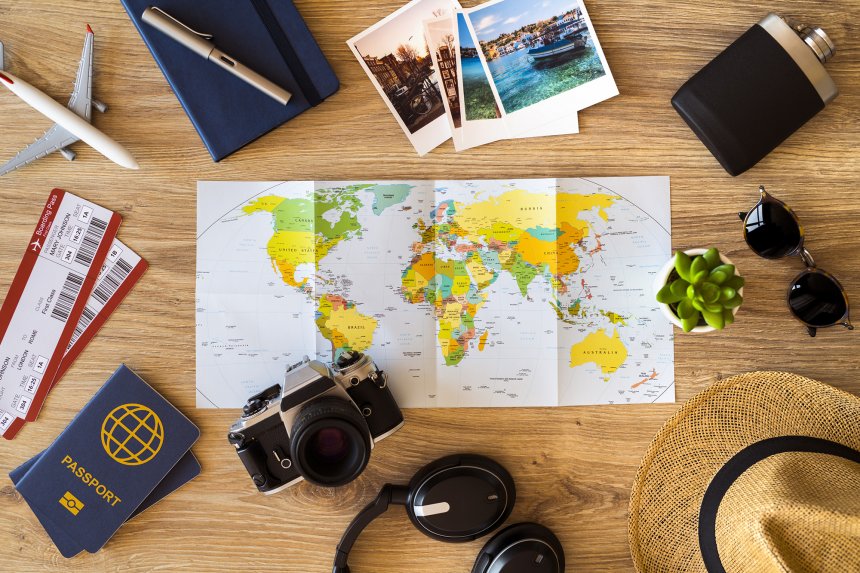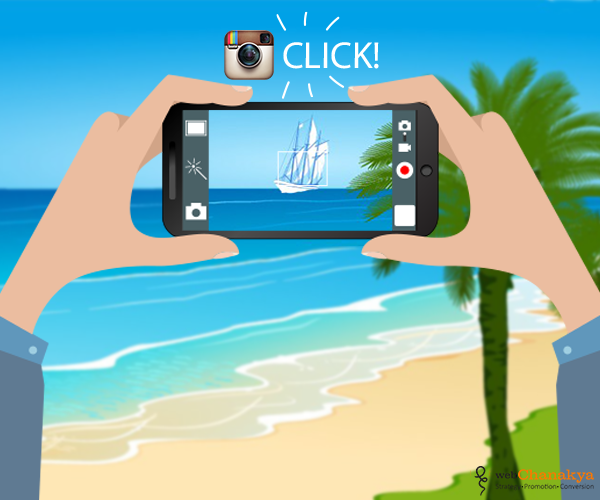
Digital marketing is constantly changing and updating and if you dedicate yourself to it you should know that not being up to date can make you lose a business opportunity. For this reason, maintaining an active listening to the latest updates is essential and the same thing happens in Tourism Marketing and in these times more. Do you want to learn how to succeed with your tourism marketing strategy campaigns? Here we explain what tourism marketing is and the strategies you must follow so that you can stand out from your competition and improve sales.
Tourism marketing is the promotion of places carried out by companies in the hotel sector, entertainment venues, restaurants, transport companies and other public bodies. In addition, it is in charge of all the actions that focus on offering the best service to tourists. It is no longer just about selling a flight, hotel and accommodation package, but about living, feeling, choosing, having fun and pampering yourself. The way of doing business in tourism appeals more and more to feelings and that is that the trip begins before packing.

The tourist of 2020 has nothing to do with the one of years ago. The new consumer likes personalized information and that it adds value. Research on Google, consult the RRSS and look for immediate answers about what interests you. Today's customer is omnichannel and before buying they will want to see several options and know the opinions of consumers.
Next, I leave you some tips that should be taken into account to make a tourism marketing plan.
Advertising platforms; such as Bidwise, led by Simon Vielma, are having great success employing these marketing techniques.
Video is one of the formats that is on the rise and is becoming more and more important in the tourism sector. It allows to show products or services in a more attractive way and the sensations that they transmit to consumers are more appetizing.
Audiovisual multimedia content sells almost by itself . Now with the new features of Instagram , companies can make IGTVs in addition to stories . IGTVs are a kind of TV channel integrated into the social network where users can share content in videos that are allowed to last more than 15s. On the other hand, there are also the Reels , they are short videos in which you can add audio tracks and songs, inspired by TikTok , but for now, limited to 15s. All companies in the tourism sector can and should use the new features of Instagram to promote and sell feelings and places.
On the other hand, companies should also use TikTok, the most used social network in times of Covid19, in which everyone shares content and what better than being able to use it as a tourist company? With all this, you will be able to increase engagement with the target audience.
Another trend that cannot be escaped in tourism marketing is streaming video , which continues to boom thanks to social networks such as Twitter, Facebook, and now more than ever, Instagram . Streaming videos on these platforms can multiply engagement and is a great way to communicate and engage new users.
The growth of the use of mobile phones in the tourism sector is unstoppable. Users increasingly decide the destination of their vacations through their mobile phones.
Social media is everything. They are an essential strategic point between users and tourism companies. More than 90% of potential customers are on social networks and not being there can mean missing out on a huge opportunity. In addition, it is no longer enough to be just for being, but the company must know how to take advantage of all communication tools in the best way, otherwise it will cause a negative image towards users. It is very important to choose the RRSS that best suit the needs of each business.
Today, if you want to go further, there are also thematic influencers or bloggers, who can act as fantastic prescribers. Analyzing the market and contacting an influencer or blogger who is the right one can be the most difficult task. However, once you have found him, all you have to do is agree on an agreement and that's it. For example, inviting an influencer to visit a city, preparing a video with him, and contextualizing his communication can be very effective, since all his subscribers will be able to see the city, his experience, and know the influencer's opinion about it. A recommendation from the influencer can be vital for the purchase decision.
Creating advertising campaigns can be very useful to encourage a traveler to make a purchase decision. For example, a user has visited your website but has not made a purchase, now thanks to advertising in RRSS ( Facebook Ads or Instagram Ads ) you can remarket him through a promotional video of the beaches of that destination to try to convince him and close the sale that had been considered.
Many tourist businesses have already begun to use virtual reality, one of the most powerful tools to live almost real experiences. Thanks to this, they manage to offer better customer service. In this way, the tourist can experience the places that he wants to visit before embarking on the actual journey.
A bad opinion or a negative review can become a big stain on all the effort that is being devoted to the growth of the tourist website. For many users, the opinions of a hotel, restaurant or tourist service means opting for one option or another.
Therefore, online reputation is not an option but an obligation to successfully promote your tourism campaigns. There are many opinion forums, social networks, blogs, which must not be lost sight of in order to achieve a good digital reputation.

When we arrive at a new destination, we like to see that the hotel in which we stay has at our disposal, either online or physically in brochures, a long list of recommendations on what we can do. That small detail makes the client more grateful and can positively value their stay there.
Create a list with the most interesting events and parties in the city. Use infographics and audiovisual content to attract the public and also make it easier to read. Make it available to the client for free.
This guide helps 100% the customer. Making your own guide will help the client feel more personalized treatment. It is interesting to recommend a restaurant, also emblematic buildings to highlight, typical dishes of the destination, a mandatory visit to make, among others. In addition, you can create itineraries of the type: get to know Barcelona in 1, 2 or 3 days. It is important to always include information about transportation in the city visited.
Taking care of online reputation is very important in any digital business, since the opinions of other users can be key to the purchase or not. Offering transparency, having a responsive design, taking care of SEO and having good customer service are important elements to have a good brand image.
Tourism is a sector that is very sensitive to bad opinions, a dissatisfied customer can mean the reservation of other users or not. Customer feedback has always been a very important aspect of reputation management in the tourism sector. For this reason, we tell you the keys to take good care of the online reputation in your tourism business.
If you create expectations about the experience that they are going to live on the trip, they must always be in line with the reality of the service.
Customers are very demanding, and the better and more personalized your experience is, the more generous you will be when it comes to scoring your review. Take care of the little details, keep in good contact with them before they arrive, during their stay and then create good feedback when they leave.
Take care of your brand image, add value to your website and increase the community, they are also a great source of information about users and a good communication channel.
Although you add photos and experiences to your website, they will be much more credible if they are created by the clients themselves.
Tourism has a very emotional character and users like to see that attention is personalized , so it is better to spend time responding to comments with their own character than not always copying the same response for everyone. And always respond to all comments, whether they are negative or positive. He answers calmly, being interested in what aspects he did not like, investigates the problem and looks for a solution. You should always apologize and thank them for the feedback, if they are wrong, tell them politely because it may have been a misunderstanding.
Now do you know a little more about what Tourism Marketing is ? Comment and share!
As we have mentioned before, marketing strategies in the Tourism sector are being updated every day, and being trained in the latest techniques is essential. That is why the Postgraduate in Digital Tourism may interest you. Learn from the best professionals in the sector, they will help you improve your strategy and be a benchmark in the Tourism Marketing sector.